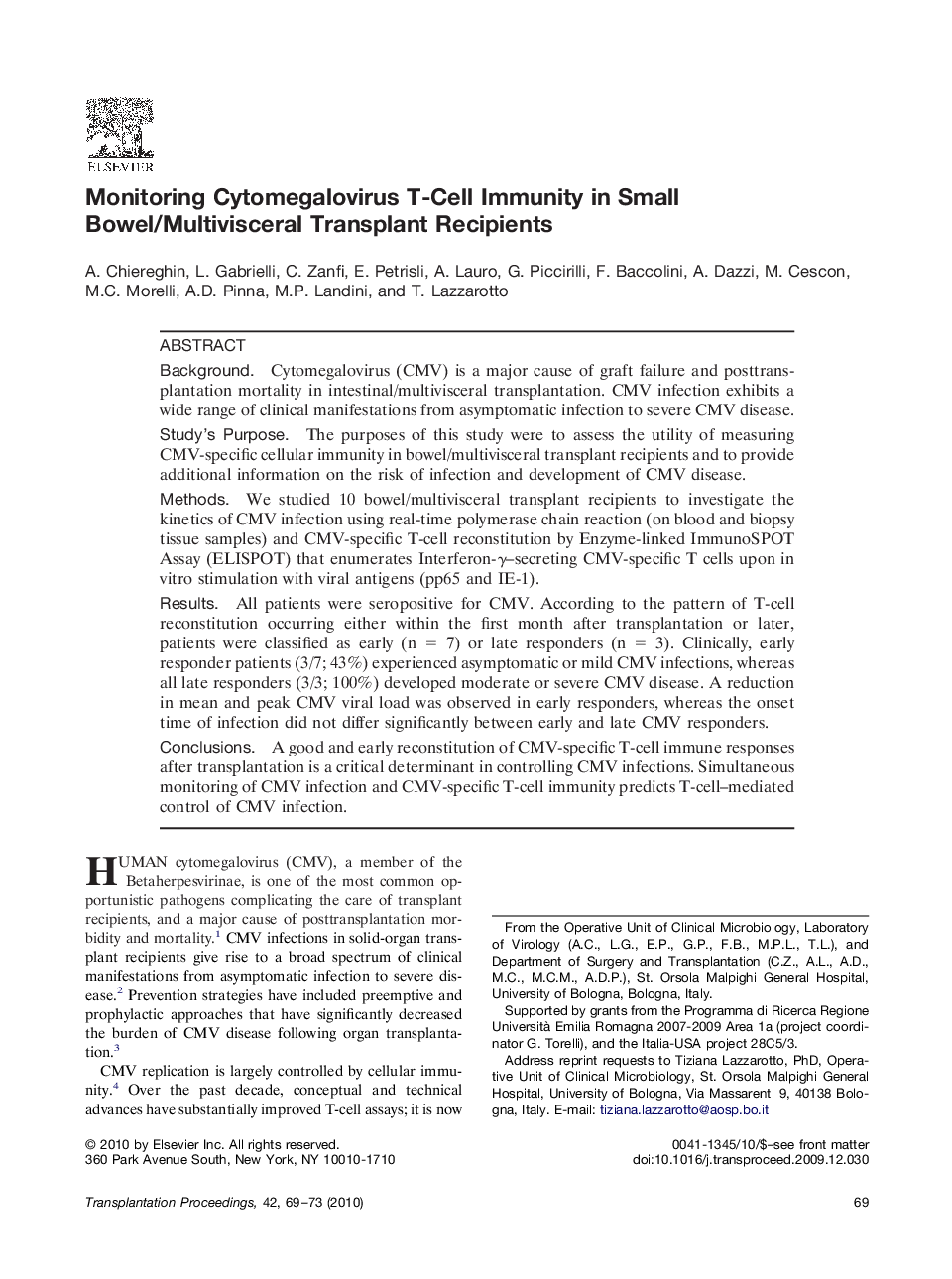| Article ID | Journal | Published Year | Pages | File Type |
|---|---|---|---|---|
| 4260822 | Transplantation Proceedings | 2010 | 5 Pages |
BackgroundCytomegalovirus (CMV) is a major cause of graft failure and posttransplantation mortality in intestinal/multivisceral transplantation. CMV infection exhibits a wide range of clinical manifestations from asymptomatic infection to severe CMV disease.Study's PurposeThe purposes of this study were to assess the utility of measuring CMV-specific cellular immunity in bowel/multivisceral transplant recipients and to provide additional information on the risk of infection and development of CMV disease.MethodsWe studied 10 bowel/multivisceral transplant recipients to investigate the kinetics of CMV infection using real-time polymerase chain reaction (on blood and biopsy tissue samples) and CMV-specific T-cell reconstitution by Enzyme-linked ImmunoSPOT Assay (ELISPOT) that enumerates Interferon-γ–secreting CMV-specific T cells upon in vitro stimulation with viral antigens (pp65 and IE-1).ResultsAll patients were seropositive for CMV. According to the pattern of T-cell reconstitution occurring either within the first month after transplantation or later, patients were classified as early (n = 7) or late responders (n = 3). Clinically, early responder patients (3/7; 43%) experienced asymptomatic or mild CMV infections, whereas all late responders (3/3; 100%) developed moderate or severe CMV disease. A reduction in mean and peak CMV viral load was observed in early responders, whereas the onset time of infection did not differ significantly between early and late CMV responders.ConclusionsA good and early reconstitution of CMV-specific T-cell immune responses after transplantation is a critical determinant in controlling CMV infections. Simultaneous monitoring of CMV infection and CMV-specific T-cell immunity predicts T-cell–mediated control of CMV infection.
